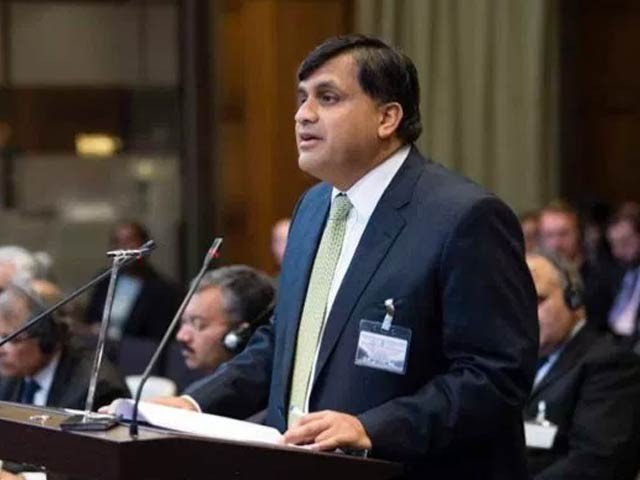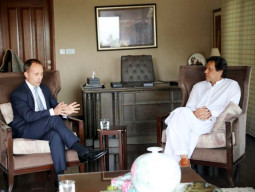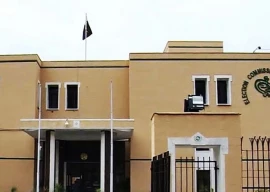
Speaking at his weekly news briefing, Foreign Office Spokesperson Dr Muhammad Faisal described the Modi-Imran telephonic conversation as positive.
"We hope that in coming days both the sides can come together to address key concerns in what is admittedly a difficult relationship," Faisal said.
"We also hope that this positive conversation can lead to the resumption of the Comprehensive Bilateral Dialogue and holding of Saarc Summit in Pakistan," he added.
Modi was among the world leaders who congratulated Pakistan Tehreek-e-Insaf Chairman Imran Khan over his election victory. The Indian prime minister in his phone call expressed his country's readiness to seek 'progressive' relationship with Pakistan.
In his victory speech, Khan held out an olive branch to India by suggesting that he would take two steps if India takes one for normalisation of strained relations between the two countries.
Meanwhile, even as the Foreign Office sounded positive about the possible thaw in ties, it raised serious concerns over the US decision to waive individual licencing requirements for the export of high technology weapons exports to India, warning the move has 'serious implications' on the strategic stability in the region.
Faisal described it as a disturbing continuation of policies of discrimination and exceptionalism, further eroding the longstanding non-proliferation norms.
Modi offers Imran ‘new beginning’ in ties with Pakistan
The spokesperson underscored serious implications on strategic stability arising from the cumulative effect of several civilian nuclear cooperation agreements between India and members of the export control regimes, the latest of which is the recent licencing waivers.
"Pakistan believes all states have the right to acquire and use advanced and dual-use technologies for socioeconomic development under appropriate safeguards and without discrimination," Faisal added.
"Pakistan urges faithful adherence by all to the letter and spirit of relevant international treaties and export control regimes."
He called on all states to carefully review their strategic export control policies that directly impinge on national security of Pakistan and undercut stated goals of preserving strategic stability in the region.
"Disavowal of established legal and normative frameworks regulating strategic goods and technologies only undermines the global rules-based order," he cautioned.

































1713853507-0/MalalaHilary-(2)1713853507-0-270x192.webp)








COMMENTS (1)
Comments are moderated and generally will be posted if they are on-topic and not abusive.
For more information, please see our Comments FAQ